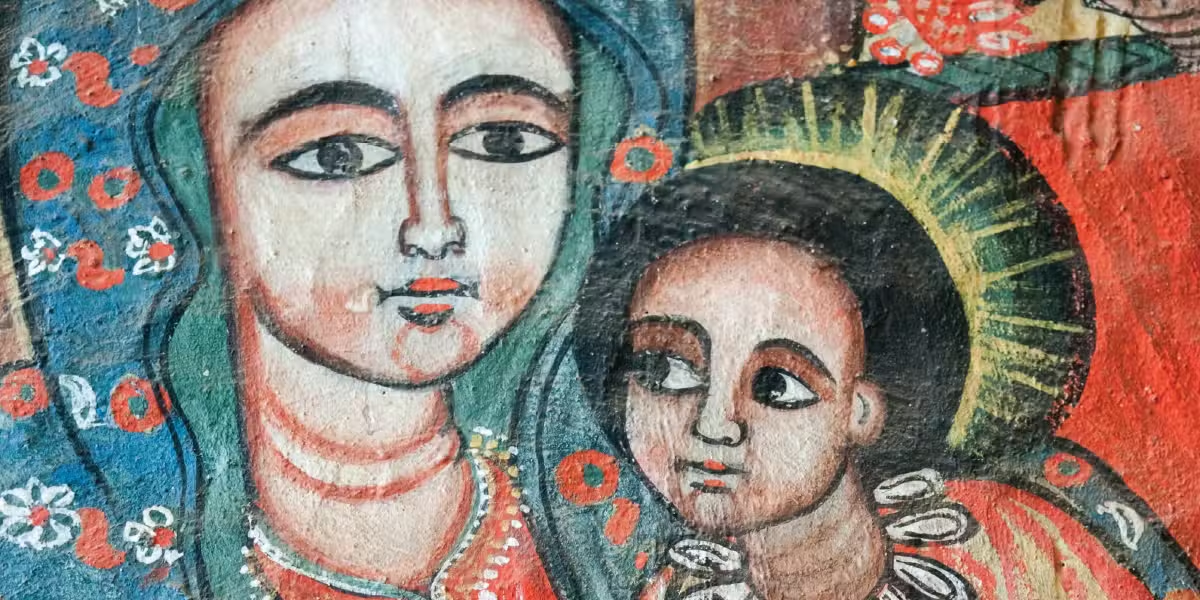Do we celebrate Christmas in December because we know he was born in that month? If not, why is his birth celebrated then?
The Gospel of Matthew (2:1–2) is of no help on this because it simply says: “When Jesus was born in Bethlehem, in the days of King Herod, behold, magi from the east arrived in Jerusalem, saying, ‘Where is the newborn king of the Jews? We saw his star at its rising and have come to do him homage.’”
The Gospel of Luke, however, mentions shepherds as being in the fields watching their flocks. That has led some people to suggest an autumn or spring date for Jesus’ birth.
Pagan Romans observed the Saturnalia festival between December 17 and 23 in honor of Saturn, a god linked to freedom. This feast includes December 21/22, the shortest day of the year in the northern hemisphere, the day when the sol invictus (unconquered sun) began a new cycle to make the days longer. Jesus is celebrated as bringing a freedom that Saturn could not bring.
Christians later thought this would be an appropriate day to celebrate Christ’s birth. Pope Julius I in AD 350 made this part of the Christian calendar.
Some people say that Christians should not try to adapt existing pagan customs, but this is hardly the only example of that happening. Christians often built churches over pagan temples.
In Jerusalem in the middle of the second century, Emperor Hadrian built a shrine to the goddess Venus over the site that Christians had previously venerated as marking the tomb of Jesus. After the Emperor Constantine in 311 recognized Christianity as a “licit religion” within a predominantly pagan society, St. Helena, the mother of Constantine, had Hadrian’s shrine torn down and built the Church of the Holy Sepulcher on the same spot, where it remains today.
Is Jesus Still Suffering for Us?
As an 85-year-old cradle Catholic, I am confused about some of our practices. For example, although we frequently see Jesus pictured as being happy in heaven, according to St. Faustina’s diary, Jesus suffers when we sin. I prefer to think Jesus is now happy. Is it possible for him to be both happy and sad in heaven?
No, that is not possible. Your first instinct about this is perfectly correct.
No matter how popular any saint’s writings may be, only the ones found in the New Testament can be considered public revelation. All others must be judged private revelation, never to be favored above public revelation.
For whatever reason, some Christians already in the first century AD felt that public revelation (Old Testament and New Testament) was not quite enough and thus needed to be supplemented.
The formal term for this is Gnosticism, a pre-Christian religious approach with variation found among Jews, Muslims, and people of other religious loyalties. Gnostics were proud of the knowledge (Greek gnosis) not intended for everyone but only for a select few people. Ironically, they were often quite willing to share that knowledge for a price.
In his 2018 apostolic exhortation about the call to holiness in today’s world (Rejoice and Be Glad)—and drawing from his first apostolic exhortation (The Joy of the Gospel, 94)—Pope Francis described Gnosticism and Pelagianism as two forms of doctrinal or disciplinary security “that give rise to a narcissistic and authoritarian elitism, whereby instead of evangelizing, one analyzes and classifies others and instead of opening the door to grace, one exhausts his or her energies in inspecting or verifying. In neither case is one really concerned about Jesus Christ or others” (34).
He writes that Gnostics fail to remember that someone’s perfection is measured not by the information or knowledge they possess but by the depth of their charity. He goes on to say that Gnostics do not understand this because they judge others based on their ability to understand the complexity of certain doctrines. They “think of the intellect as separate from the flesh, and thus become incapable of touching Christ’s suffering flesh in others, locked up as they are in an encyclopedia of abstractions. In the end, by disembodying the mystery, they prefer a God without Christ, a Christ without the Church, a Church without her people” (37).
Pope Francis goes on to explain: “When somebody has an answer for every question, it is a sign that they are not on the right road. They may well be false prophets, who use religion for their own purposes, to promote their own psychological or intellectual theories” (41).
So what is Pelagianism, the other main enemy of holiness? Unlike Gnostics who identify salvation with certain ideas, Pelagians reduce it to our human ability to choose (48). Gnosticism and Pelagianism may seem to be simply abstract ideas, but they have very practical consequences; they completely justify a wide range of concrete actions.
Why Are Married Priests Controversial?
Jesus performs a miraculous healing of Peter’s mother-in-law (Mt 8:14–15). This indicates that Peter was married, at least for some period of time. This is the same Peter commonly referred to as “the rock” whom Jesus appointed to head his Church (Mt 16:18). If Jesus had no problem “anointing” Peter as the head of the Church, why does the Roman Catholic Church have such difficulty with the concept of married priests? Is it comfortable with combining or closing parishes in part because of having fewer priests?
In 1139, the Second Lateran Council required that Roman Catholic priests be celibate. Orthodox Christianity long had married priests as long as they married before ordination; it also chose its bishops only from celibate monks.
The Western practice sought to clarify that priests did not own the property or buildings where they exercised their ministry. Married priests were also more vulnerable to political and economic pressure.
There are married Roman Catholic priests who were married before they became priests. If they become widowers, they are not permitted to marry again.


